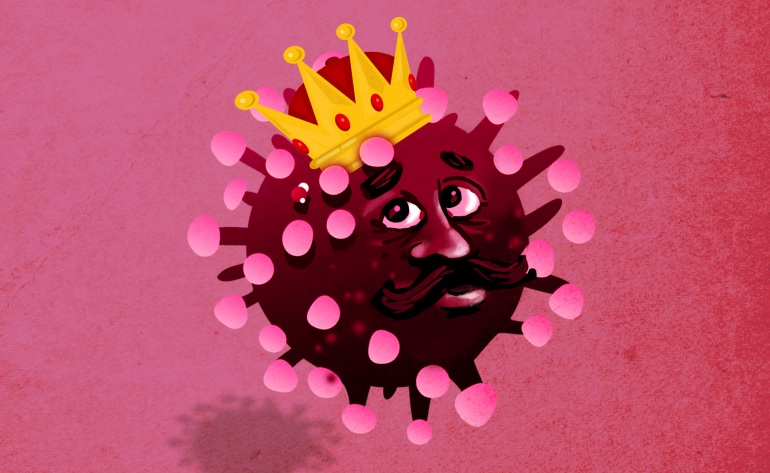
About 96% of Asian population is fully vaccinated — the highest amongst all ethnic groups: CDC
While no South Asian specific data is available, about 96% of Asian population is fully vaccinated, the Centers for Disease Control and Prevention (CDC) does report that about 96% of Asian population is fully vaccinated.
This is the highest amongst all ethnic groups, notes Dr Nitesh K Jain, Assistant professor of Medicine, Mayo Clinic Health System, Mankato, Minnesota.
A Board certified lung and ICU specialist, who has trained in India, UK, and USA, he has been a frontline clinician in the ICU during the Covid-19 pandemic.
Dr Jain has also been very active in Covid-19 related research, public health aspects of the pandemic as well as studying and reporting on the effects of Covid-19 vaccines.
Read: Despite getting Covid-19, Vivek Murthy’s faith in vaccines unshaken (February 22, 2022)
As the new Omicron variant BA.2 raises concerns in the US about the possibility of yet another Covid-19 breakout, the American Bazaar talks to Dr Jain about it.
He explains everything from the new predominant variant, BA.2 in circulation in USA to how well the South Asian population is protected against the SARS corona virus 2.
Read: We are now seeing a new Omicron sub-type: Dr Sara Cody (January 27, 2022)
AB: What is the impact of the new Omicron variant BA.2 when compared to BA.1?
Dr Nitesh Jain: The newer Omicron variant BA.2 relative to BA.1 is more transmissible than any other SARS Corona virus 2 variant. However, the clinical presentation and severity does not appear to be significantly different from BA.1.
BA.2 is now the predominant variant in circulation in the USA and likely the world. However, we have not seen a surge of hospital admissions and that could be because of the widespread immunity induced by BA.1 and the immunity provided by vaccination.
About three-fourths of the US population has been fully immunized, and many have also taken a booster. Therefore, along with natural immunity induced by actual infection, the US population appears to be fairly well protected against hospitalizations and severe infections.
This has led to indoor masking directives being removed by public health authorities.
However, word of caution, elderly (above 65 years) and immunocompromised people should continue to observe precautions and strongly consider taking boosters which gives them better protection.
AB: Is the South Asian population well protected against the SARS coronavirus 2 infection and variants?
NJ: While no South Asian specific data is available, the CDC does report that about 96% of Asian population is fully vaccinated. This is the highest amongst all ethnic groups.
Most experts believe that SARS coronavirus-2 will become endemic at some point graduating from a pandemic. Some already believe that it has already graduated.
Looking forward, complacency is not a good thing. It is possible that we may have a good spring and summer, but when winter sets in, antibodies levels may wane.
We may also have new variants which may mean that the play field where disease causing factors due to the virus and host immune response interplay changes, resulting in a fresh wave of cases with variable severity.
Therefore, continued survey of disease patterns, public health preparedness and funding from the government is essential.
It may also mean that we may see a need for more booster doses akin to the annual flu vaccine.
Read: Omicron can lead to 64 times more cases in the third phase (January 17, 2022)
AB: Should people get booster shots? What is the ideal way of getting a booster?
NJ: Yes, it is recommended. After getting the primary two shot series of Covid vaccine, the antibody levels decline with time and increases the risk of infection. It is therefore recommended to get a booster shot.
As per CDC, anyone who has got Pfizer vaccine as a primary series, can get a booster shot after five months of the last dose if they are 12 years of age and above.
If they have gotten the Moderna vaccine as a primary series, then they can get a booster shot five months after the last dose provided they are 18 years or older.
The age cut off of 12 years (for Pfizer) and 18 years (for Moderna) is recommended based on effectiveness and safety data from clinical studies .
AB: Why should I get a booster dose of Covid-19 vaccine?
NJ: It has been noted that after a primary series of two vaccine doses, there is good protection against hospitalization, death, and serious illness to the recipient.
However, with time antibody levels decline and protection against mild to moderate infection decreases especially with emergence of new variants of the virus and in people older than 65 years of age.
Hence CDC has recommended that all eligible individuals who have completed a primary vaccination series and meet the booster criteria, should receive the booster dose.
Read: We must share Covid-19 vaccines with those who are less fortunate (January 30, 2022)
AB: Is the content of the booster dose the same as the primary vaccination dose? Can we mix and match or use the different vaccines interchangeably?
NJ: The booster doses are the same in terms of content for both Pfizer and Moderna vaccines. However, the Moderna vaccine is given as half the dose when the booster is being administered.
Both the vaccines available in the USA provide good immunity and protection against mild, moderate, and severe disease including hospitalizations and death when the booster dose is administered after the primary series.
However heterologous booster administration (mix and match), that is using the two different vaccines interchangeably at the stage of booster dose in relation to the primary series, helps give better protection against infection.
When compared to non-boosted individuals, boosted individuals also get better protection for severe disease.
(Dr. Nitesh Jain, MBBS, FACP, FCCP, FRCP is a Board certified lung and ICU specialist, who has trained in India, UK, and USA)



